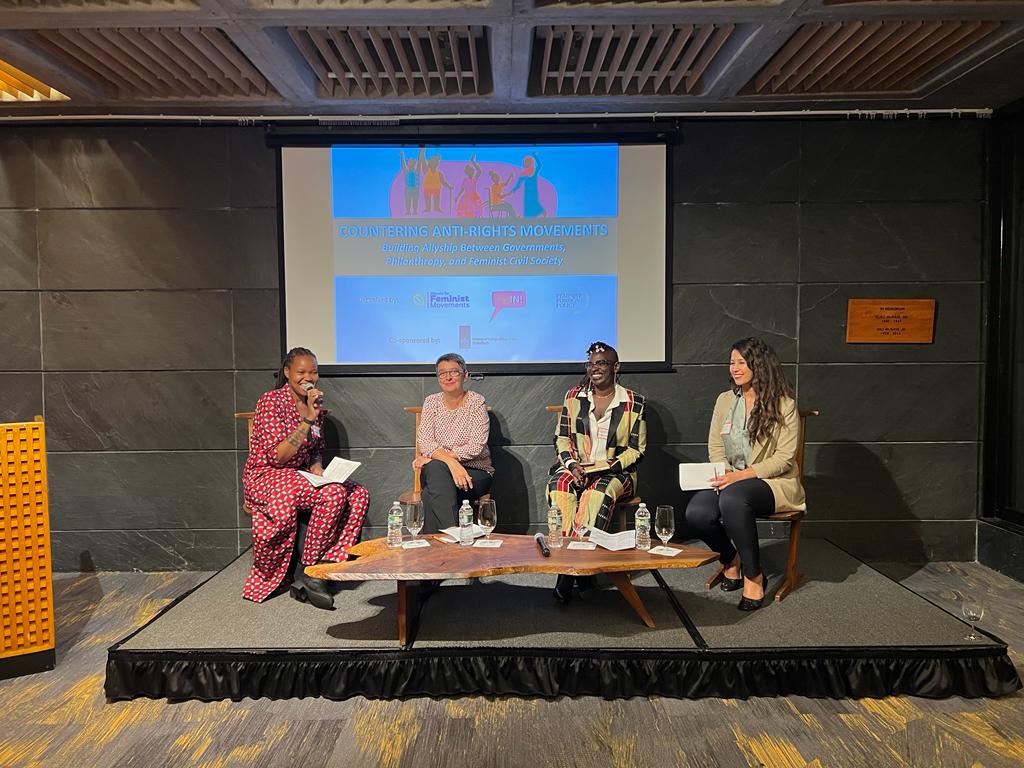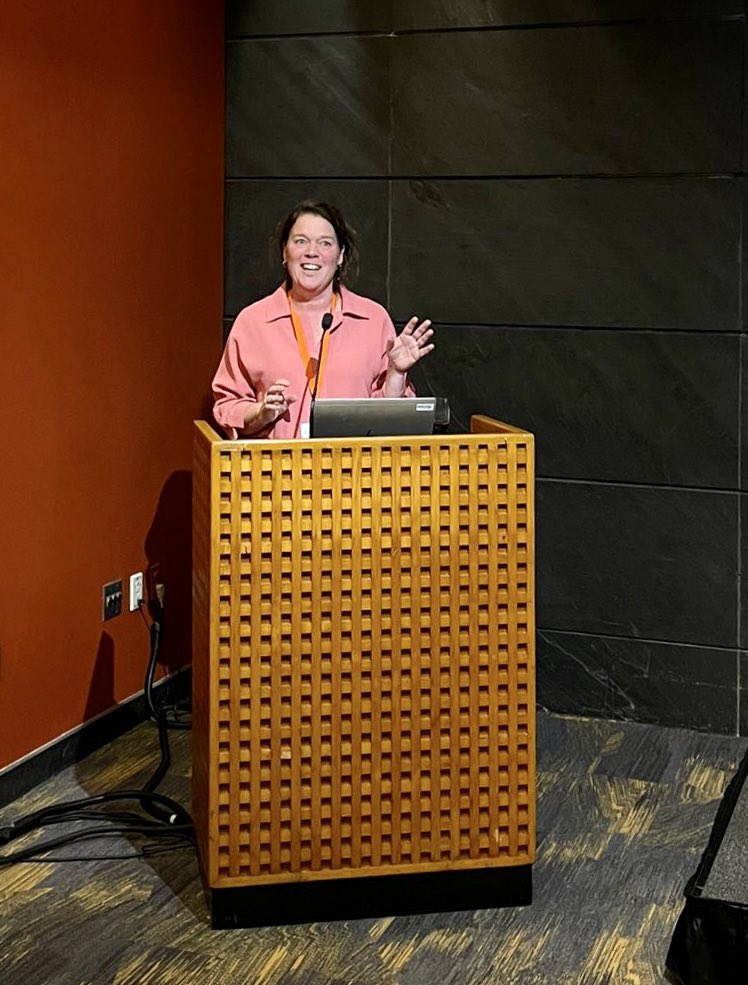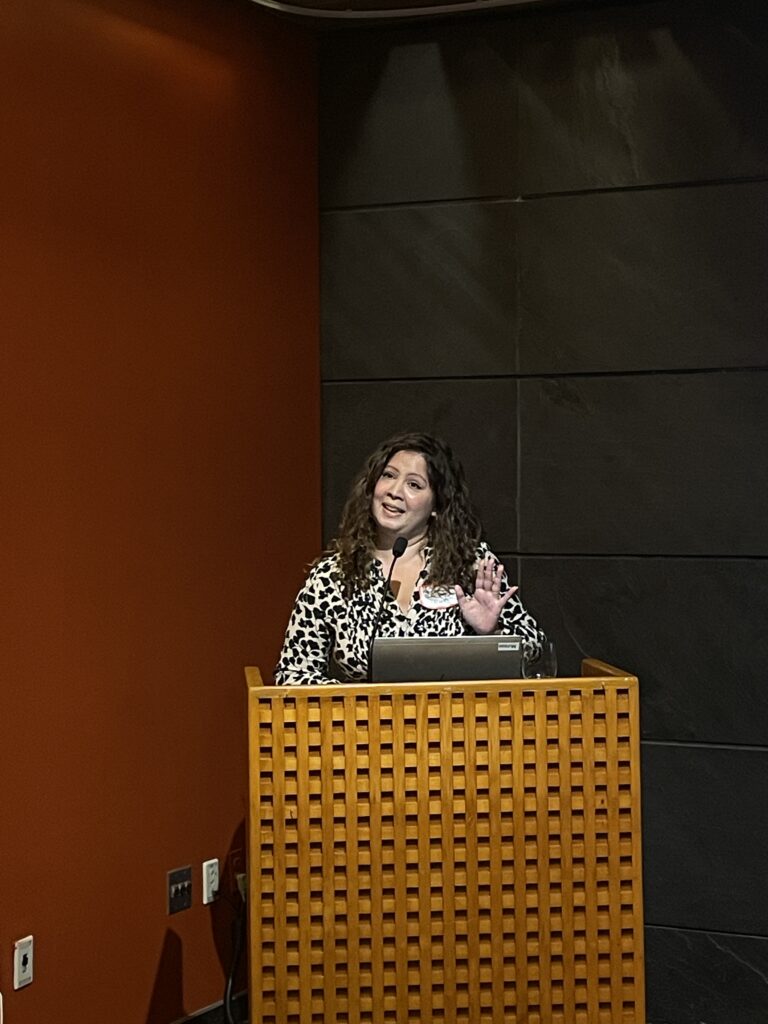Today, 75% of the world’s population lives in anti-democratic, anti-rights political environments. Anti-gender and anti-rights movements worldwide have more and more resources and influence. And they come in packs: together with anti-democracy, anti-climate and anti-human rights forces. There is no time to lose. Funders, governments, UN bodies and movements must join with feminist movements to push forward for gender justice, human rights, climate justice and democracy.
On 20 September 2023, the Murase Room in the Japan Society building was packed for the event ‘Countering anti-rights movements: building allyship between governments, philanthropy, and feminist civil society’ at the 78th session of the United Nations General Assembly (UNGA 78).*
The speakers and panellists pointed out what needs to be done to fight anti-rights movements effectively. They saw the urgent need for forming coalitions at different levels, changing narratives, listening to the South and, finally, for more funding for feminist movements.
FUND FEMINIST MOVEMENTS
Throughout the session, it was unequivocally stressed that grass-roots self-led feminist movements are pivotal in pushing back against anti-rights movements and, to do so successfully, they need long-term, core and flexible funding.
“Anti-rights movements are frequently vastly more resourced than feminist movements challenging them… just US-based anti-rights organisations between 2008 and 2017 were at US$6.2 billion.” Naureen Shameem (Founder and Executive Director, Noor) laid out a dire picture.


“This is where adequate, reliable, flexible and predictable funding is crucial.” Pascalle Grotenhuis (Director-General, International Cooperation, Netherlands Ministry of Foreign Affairs) vocalised the Dutch financial and political commitment to gender equality and called others to fund feminist movements:
“As a leader of the Action Coalition for Feminist movements, we encourage all the funders to increase funding for feminist movements and create funding flows accessible to those on the frontline.”
What is also needed is “Funding from the position of trust and solidarity. Trust in those closest to the community, those who know their problems, can name them and propose solutions,” – stressed Linda Weisert (Global Director – Equity, Gender & Youth, Children’s Investment Fund Foundation). She added:
What we hear repeatedly is: fund collective struggle as opposed to siloed issues which promote competition and disintegration of movements.
Wanja Ngure (Programme Manager, UHAI EASHRI) reminded us of the reality of the activists taking human rights and gender equality work forward:
“Least funded are the LBQ women, the trans population. People who are going through so much…and we expect these people to fight against anti-gender movements.”
CHANGE THE NARRATIVE
“So much of our and your precious time is spent on countering misinformation and defending language we agreed on more than 25 years ago – an international agreement.” Pascalle said. She called for value-based communications to fight back the anti-rights narratives.
Raquel Lagunas (Global Director of Gender Equality, UNDP) elaborated on how engaging multilateral spaces like the UN can effectively contribute to shifting narratives. For example, preparing senior officials in the UN before going into negotiations so that they have a solid narrative to present. She stressed having more feminists in the UN system to reiterate the feminist narratives through all forms of communication.


FORM STRONGER ALLYSHIP ACROSS SPACES AND MOVEMENTS
Anti-rights movements are massively well-resourced and well-organised and collaborate with other structures of injustice. To counter a force as powerful as that, feminist movements must join hands in different spheres, which can open doors to further collaborations.
For example, as Raquel shared:
“Mutilaterals can bring feminist groups at the heart of climate finance, financing institutions, G20s. Multilaterals can push open spaces in coalition with organisations.”
Collaborations are essential in expanding narratives, supporting and uplifting Feminist Foreign Policy, monitoring anti-rights movements and taking more vigorous action.
FOLLOW THE LEAD OF FEMINIST VOICES FROM THE SOUTH
Anti-rights movements effectively adapt to local contexts in different regions and countries. For funding that flows to the South to successfully fight them, speakers emphasised the need to follow the leadership of local voices, including feminist activists and communities. Their priorities and strategies must be supported, and their guidance must be sought in designing funding programmes and policies.


There are several creative and effective tactics feminist movements use to push back against anti-gender movements, Naureen shared. These include narrative strategies and debunking; story-based strategies; cultural work; inter and cross-movement network building; building and sharpening our knowledge of anti-rights movements – discourses, actors, tactics and uncovering their funding flows; and building digital literacy and resilience to counter anti-rights strategies of disinformation. Some groups also work with religious interpretations.
The session ended with an energy that can be summarised in Wanja’s words,
Anti-gender people are not talking. They are organising and fighting hard…Let’s move from just conversations to action.
*This event was organised by the Alliance for Feminist Movements, the Count Me In Consortium, and the Global Partner Network for Feminist Foreign Policy, and is co-sponsored by the Dutch Ministry of Foreign Affairs.